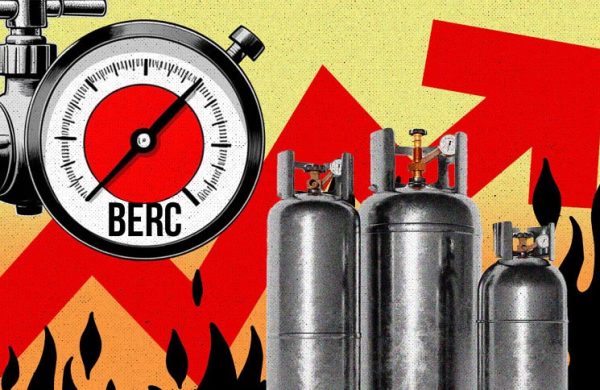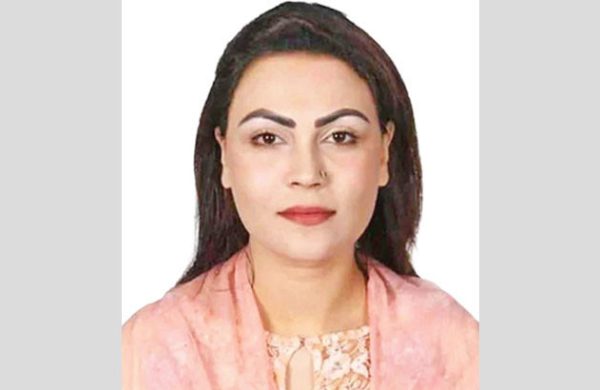Rising gas prices threaten our investment prospects
- Update Time : Monday, April 28, 2025

—M. Shamsul Alam—
On April 13, 2025, despite objections from businesses and consumer rights organisations, the Bangladesh Energy Regulatory Commission (BERC) set new gas prices for new industries, raising the tariff from Tk 30 to Tk 40 per unit. For captive power plants, the tariff has been increased from Tk 31.50 to Tk 42 per unit. This increased rate will also apply to existing customers if they use more than 50 percent of their approved load.
At a time when the government has presented the country as an attractive destination for global business through the Bangladesh Investment Summit 2025, this gas price hike has caused concern among industrial consumers who are worried about investments getting stalled by increased gas prices. A business leader pointed out that the method used to determine gas prices was flawed; VAT is being imposed at both the import and distribution stages. Meanwhile, gas theft continues without effective measures to prevent it. Instead, to cover the losses, the gas price is being increased, he remarked.
This differential pricing has caused discrepancies in energy costs for similar operations, disrupted the level playing field, and weakened national competitiveness in industrial sectors—posing a threat to both domestic and foreign investments. A transparent and fair energy pricing is essential to maintain investor confidence and ensure industrial growth. The said BERC order to increase gas prices is inconsistent with the goals of economic development and attracting investment. No effective initiatives have been taken to explore our own gas resources. Instead, the government has become overly dependent on LNG imports, which primarily benefit an oligarchic class. One of the core foundations for attracting foreign investment is energy security. Repeated abnormal hikes in gas prices disrupt energy security and create uncertainty in investment security.
In Bangladesh, the ratio of private investment in terms of GDP, which has been historically underwhelming, is now on the decline. In FY2021-22, the private investment to GDP ratio was 24.52 percent. By FY2023-24, it fell down to 23.96 percent, according. In the first six months of FY2024-25, foreign direct investment in the country amounted to only $213 million, a significantly lower amount than the $744 million during the same period the previous fiscal year. If investment cannot be increased, employment will decline, people’s income will decrease, and young people will not get the jobs they hope for.
Statistics on private bank loans and the import of capital machinery also reflect stagnation in investment. In February 2025, private sector credit growth dropped to 6.82 percent—the lowest in the past 10 years. Between July 2024 and February 2025, capital machinery imports shrunk by nearly 25 percent. The main issue is the lack of energy security, which is making the investment environment unfavourable. To address the gas crisis, the government, in 2023, raised industrial gas prices by up to 178 percent while promising increased LNG supply. Yet, the crisis remains unresolved. In January, Petrobangla proposed to raise gas prices for industries by 152 percent, aligning the rate with the cost of LNG supply.
System loss in gas distribution and transmission is 13.53 percent. However, according to BERC’s own estimates, it is just 1.12 percent—the rest is due to wastage and theft. As I have mentioned before, if the value of these losses were not adjusted into the pricing, around Tk 10,870 crore of taxpayers’ money could have been saved annually.
VAT is being charged twice in gas pricing. The BERC technical committee recommended charging VAT only once, which would reduce annual predatory expenses by approximately Tk 3,548 crore. In contrast, a 33 percent hike in gas prices for industrial and captive power use is expected to generate only about Tk 713 crore in additional annual revenue.
These figures clearly demonstrate that simply making VAT and system loss fair and reasonable could prevent predatory expenses, potentially saving Tk 14,418 crore annually. Yet, instead of eliminating these predatory costs, BERC has arbitrarily raised industrial gas prices under a separate gas pricing structure—beyond its jurisdiction.
Domestic gas supply in FY2022-23, FY2023-24, and FY2024-25 was 22,651, 21,082, and 20,067 (projected) million cubic metres, respectively. This consistent decline indicates a deepening energy crisis. Currently, LNG accounts for 25 percent of the total gas supply—a figure projected to rise to 75 percent by 2030. In light of this, the government is now determined to sell gas to industrial consumers at the LNG rate of Tk 79.34 per cubic metre. Meanwhile, all charges related to energy supply are being raised to abnormal levels.
After gaining power for pricing, the previous government increased gas production, transmission, and distribution charges by approximately 40 percent, 114 percent, and 60 percent, respectively, within a year. The charges of Petrobangla and Rupantarita Prakritik Gas Company Ltd (RPGCL) were raised by 24 percent and 109 percent, respectively. The gas price was increased by 150 percent, 155 percent, and 178 percent for large, medium, and small and cottage industries, respectively. For captive power, the increase was 97 percent, and for electricity, it was 209 percent. Under the current government, a 33 percent hike has already been implemented. In this context, BERC stated that gas distribution companies had proposed raising prices by over 150 percent for new industries, but acknowledged that such a jump would be too difficult to bear at this moment.
In the public hearing held in 2022, it was revealed that 65 percent of the Gas Development Fund remained unspent. Only 35 percent was used to pay foreign contractors. National capacity development was not prioritised. As a result, 75 percent of gas supply is projected to come from LNG by 2030. This trend remains unchanged under the current administration.
Earlier on February 13, 2025, the Consumers Association of Bangladesh (CAB) sent a letter to BERC. In a press conference on February 22, CAB proposed postponing the public hearing on gas price hikes and reducing energy prices by eliminating predatory expenses. During the hearing held on February 26, CAB recommended rejecting the unjust and unreasonable gas price hike proposal. In the post-hearing report dated March 4, the following recommendations were forwarded:
- i) Under the amended Section 34 Ka of the BERC Act, all pricing orders issued by the ministry concerning energy should be revoked, and new prices should be set by BERC.
- ii) The total amount of predatory costs adjusted into energy pricing during the previous government’s tenure should be determined, and existing rates should be reduced by excluding such costs and excessive government revenue.
iii) A tribunal led by a retired Supreme Court judge should be formed to bring energy criminals to justice.
iv)The BERC Act should be amended to ensure energy justice and protect consumer rights.
- v) A reform commission under BERC, comprising stakeholder representatives, should be formed to restructure the energy sector, ensuring affordability and availability for consumers.
BERC did not respond at all to these proposals. Instead, it showed particular interest in aligning industrial gas pricing with the high cost of LNG, leading to discriminatory pricing.
It indicates that the previous government not only turned the country into a net importer of energy, but also initiated a process to make it an import-dependent market for industrial goods. Is the current government going to continue following the same trajectory?
——————————————————————
- Shamsul Alam is energy adviser at the Consumers Association of Bangladesh (CAB), and professor of electrical and electronic engineering at Daffodil University.



















